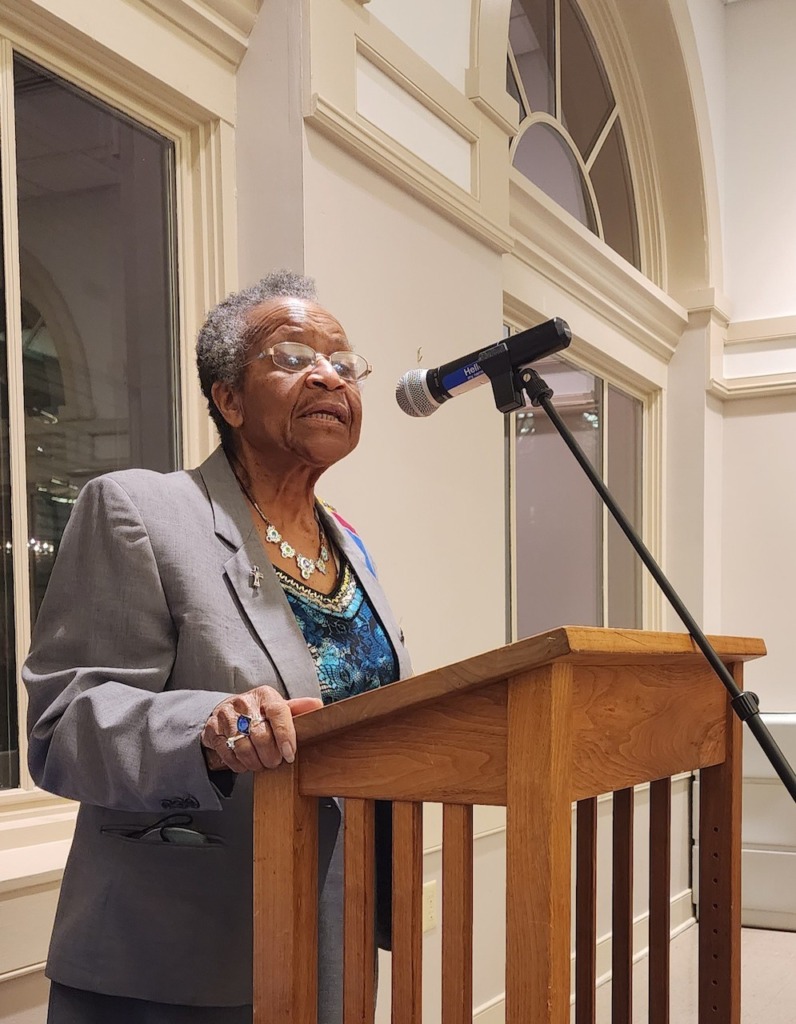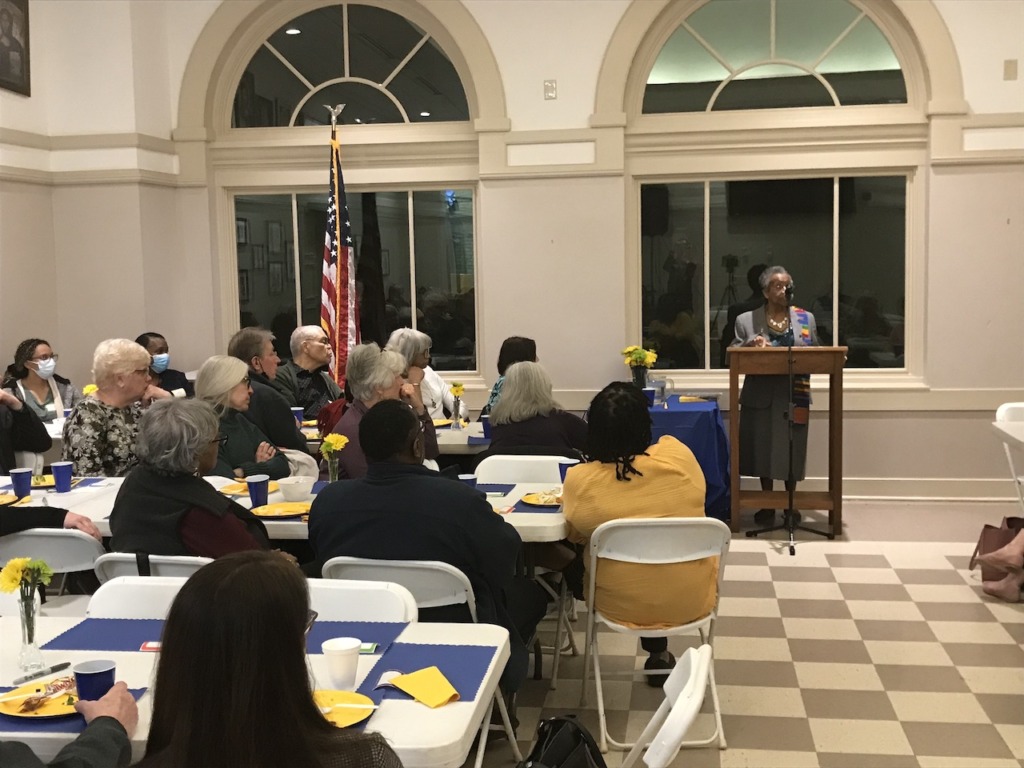On Wednesday, Feb. 8, the Cathedral of the Sacred Heart, Richmond, hosted a second event in The Deacon Charles Williams Speaker Series on Racial Healing. The program featured Mercy Sister Cora Marie Billings, whose presentation titled, “May I Present Some Black Women Religious” focused on her life at the forefront of the Church and societal change in her 66 years as a Black nun.
The series honors the memory of Deacon Charles Williams, who served as a deacon at the cathedral from 2013-2022 and as director of the diocesan Office for Black Catholics from 2018-2022, when he died. Its purpose is to continue his mission of educating individuals and groups on racial injustice, racial healing and preserving the history of the Black Catholic experience in the Diocese of Richmond.

The biannual initiative, which debuted last year, features a guest speaker in November for Black Catholic History Month and one in February for Black History Month. The program includes Mass, dinner, a presentation, and question and answer session. It was livestreamed on the cathedral’s Facebook page.
The Mass concelebrated as part of the pro- gram was offered for Deacon Williams on the feast day of St. Josephine Bakhita, patron saint of Sudan and of victims of human trafficking.
Sister Cora brought a relic of the saint with her to the cathedral.
Father Tochi Iwuji, newly appointed director of the diocesan Office for Black Catholics, was principal celebrant and homilist for the Mass.
Besides her relic of St. Josephine, Sister Cora brought another treasured possession with her: “Subversive Habits: Black Catholic Nuns in the Long African American Freedom Struggle,” a 2022 book by history professor Shannen Dee Williams which provides a history of Black nuns in the U.S., including their role in the civil rights movement. Sister Cora figures prominently in that history.
Her story began in 1956 when, at 17, she became the first Black woman to be accepted into the Sisters of Mercy in Philadelphia.
After more than six decades, the tiny woman with a big presence is showing no signs of slowing down.
When Shelley Anderson of St. Elizabeth Parish, Richmond, asked Sister Cora if she planned to retire, the nun answered, “I’m not retiring! I’m 83, and I’m planning to be 125. I want to be the oldest living person in the world!”
For her presentation, Sister Cora told her story within the context of her family’s experiences with slavery and racism, her history as a Black nun con- fronting racism in her religious community and in the Church that mirrored the larger society, and those she admired who courageously resisted it. She spoke of Franciscan Sister Antona
Ebo, for example, a civil rights activist who marched with Dr. Martin Luther King Jr. at Selma in 1965.
“Women religious need to be examples,” Sister Cora said. “If we’re living up to the legacy Charles started for us, we have to look within ourselves to change things. If God has given me what I need, I have to use it.”
She explained the importance of relationships in this process.
“Our relationships have to improve,” she said. “To change ourselves, we must become relational … Go to who offends you, then go do what Christ taught,” she said.
“In order to get rid of racism, we have to admit where we are. We can’t move on until we can admit it and own it; otherwise, it won’t ever be eradicated,” she concluded.
In his homily, Father Tochi spoke of St. Josephine Bakhita, noting that “St. Josephine went from slavery to Bride of Christ.”
He explained that she did this by being open to what God wanted of her, and that the transformation to Christ-centeredness is possible for everyone. In reflecting on the Parable of the Ten Virgins (Mt 25:1-13), Father Tochi explained that the Gospel tells everyone to be ready for the Lord’s coming, to prepare. However, they need wisdom to be able to do this, to know how to prepare.
“Wisdom tells us to stick with God,” he said. “It tells us to seek truth and stick with it. It seeks to find what is true. It’s Christ himself.”
“Wisdom is the best way to relate to God and His children in life,” he said. “If we focus on the truth, it becomes possible to love, though it might be difficult.”

